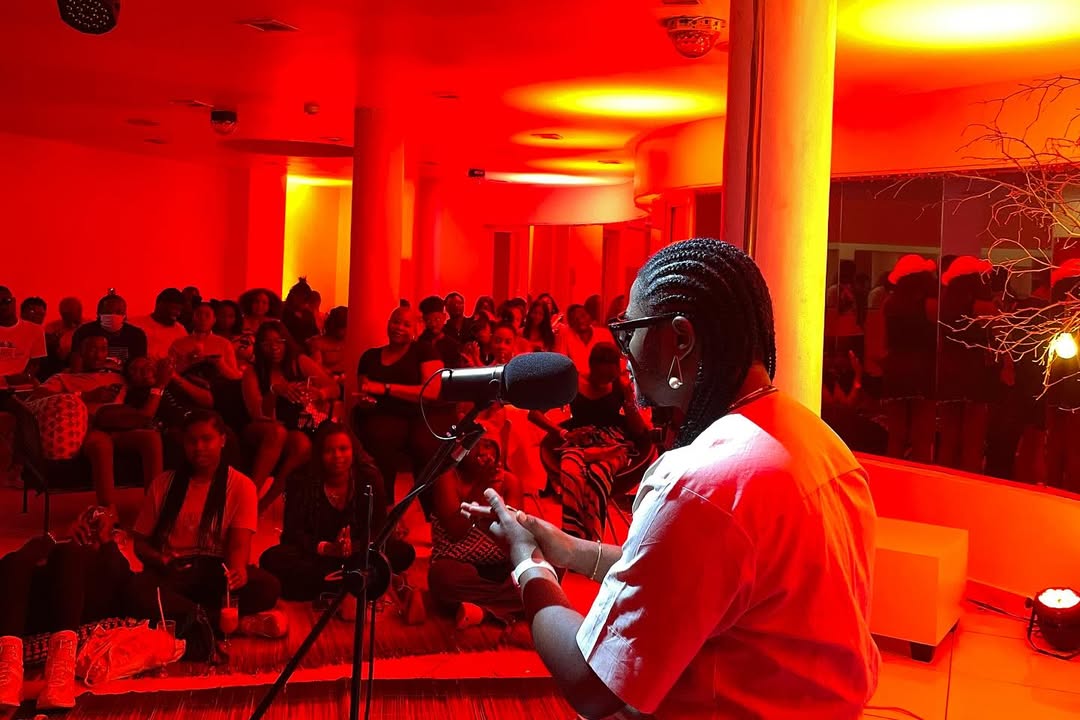A couple of days ago, I was having a conversation with a friend. I told him how I’m obsessed with an artist. Well, while I am obsessed with the artist, I can also see him gaining traction and building community. And the person asked me why I sounded sad about it. I said I sounded sad because it means I’m going to lose my artist.
He asked, “Why is that a bad thing?”
And genuinely, I didn’t have a ready answer.
But this is the much I know:
When an artist blooms, especially one that has built a safe, comforting community for you, as they grow and become bigger, you start to lose the intimacy you once had with them. And it’s a two-faceted thing. Because while you’re happy that your artist is becoming a global phenomenon and finally getting the recognition they deserve, you’re also a little heartbroken. Your private little artist moment is gone. The inside jokes, the niche references, the sense of “we knew him before the world did” — they start to fade.
But that’s what happens with community building.

Community building means developing a circle around your sound, your art. Creating a space where your fans feel like they’re in direct relationship with you. Even when it’s not entirely one-on-one, it’s close enough to feel personal. A community that knows you. A community that listens and speaks back. A community whose feedback shapes your work, and who know that their feedback matters.
That is what community building is. And in the Nigerian music industry over the last five years, one of the artists we’ve seen do this, carefully and intentionally, is Dwin, The Stoic.
Dwin doesn’t make the kind of music that typically “blows” in Nigeria. It’s not the usual Afrobeats, the fast, jumpy, radio-ready stuff. No. Dwin makes music for real lovers. His songs are slow, quiet, deeply emotional, and beautiful. For a while, he was quietly building a community. And he had loyal fans — the kind who could draw a timeline of his growth using specific songs.
There are people who’ve loved him since ‘Ifunanya’.
People who’ve cried to ‘Sit’, a quiet, soulful meditation on grief and loss.
People who still hold ‘This Fight’ close, the song he released in 2021 as a memorial for the lives lost during the End SARS protest in 2020.
These songs became community markers, emotional bookmarks in the timeline of fans who found themselves in Dwin’s music long before he made it to bigger stages.
And then one day, everything changes.
Your artist, once your little secret, becomes known. You wake up and the whole world is singing Streets. Word for word. People are quoting lyrics on Twitter. Radio is playing it. The algorithm is catching on. The shows begin. First across cities, then across countries. Your artist is no longer just yours.
And even though you’re proud, so proud, something about that shift feels like loss.
But again, that’s what happens with community. As families grow bigger, intimacy sometimes grows thinner. Still, that doesn’t change the fact that this artist is yours. That you were there when it was quiet.
That’s the gift and curse of community.
When we talk about building community as an artist, we’re talking about more than just growing followers or chasing clout. It’s about connection. Building a world your fans feel like they belong to.

So what does it really mean to build community as an artist?
It means:
- Letting people in. Sharing your story. Your process. The messy drafts and voice notes, not just polished press.
- Engaging consistently. Talking back, replying, asking for opinions, doing live check-ins.
- Creating rituals and shared experiences. Inside jokes, unique hashtags, symbolic songs that bind your fans.
- Rewarding loyalty. Remembering your day-ones and making sure they feel remembered.
- Using vulnerability as a bridge. Grief, heartbreak, confusion. When you’re honest, your fans hold you tighter.
This kind of community doesn’t just support your art. They sustain it.
They stream your music, sure. But they also buy your merch, fly out to your shows, fund your projects, carry your message, and show up for you when the numbers don’t.
They give you a cushion to grow creatively. They make you feel safe to try and fail and try again. And they remind you that your art matters to real people, not just charts and platforms.
So yes, losing that intimacy can feel like heartbreak. But it’s also proof that the community worked. That the music did what it was meant to do. Connect, move, grow.
Dwin, The Stoic is proof of that.
And whether or not we still get to sit in the quiet with him like before, his voice will always be home for those who first heard it in the silence.
.svg)







.png)

